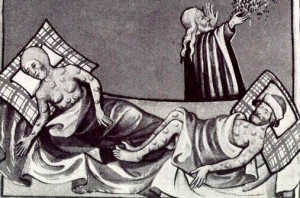The Minimum Wage’s Medieval History

Once the dead had been buried, feudal society was shaken to its core by a startling realization. As this same chronicler complained, “there was such a shortage of servants, craftsmen, and workmen, and of agricultural workers and labourers, that a great many lords and people … were yet without all service and attendance.” Survivors could now command much higher compensation for their work, and they weren’t shy about asking for it: “The humble turned up their noses at employment, and could scarcely be persuaded to serve the eminent unless for triple wages.”
In response, King Edward III — a wealthy landowner who was as dependent on serfs as his many lords — issued the “Ordinance of Labourers,” which put a ceiling on how much workers could charge for their labor, setting wages at pre-plague levels. Subsequent amendments of the law — for example, the Statute of Labourers in 1351 — amplified the penalties for paying above set rates.
These laws effectively set what we would call a maximum wage. But the measures reflected something a bit more complicated than an attempt to stick it to the serfs. They embodied a distinctly medieval belief that one’s earnings should be commensurate with one’s station in life. The Catholic theologian Thomas Aquinas wrote that a man’s “external riches” must be sufficient “for him to live in keeping with his condition in life.” Anything less was cruel; anything more was an enticement to sin and a threat to the social order.
On Bloomberg’s The Ticker, Stephen Mihm looks at the history of how minimum wages were set by looking at the laws that were put into place after the Black Death ravaged medieval England and laborers were in short supply and in high demand. King Edward III set a maximum wage to prevent serfs from asking for un-serf-like compensation, but the laws governing wages were then used to set a “living wage.”
See also: This post on The Berkeley Blog looking at the early beginning of income inequality in early America.
Photo: Wikimedia Commons
Support The Billfold
The Billfold continues to exist thanks to support from our readers. Help us continue to do our work by making a monthly pledge on Patreon or a one-time-only contribution through PayPal.
Comments